The Trouble With Women (1947)
By Toronto Film Society on September 30, 2019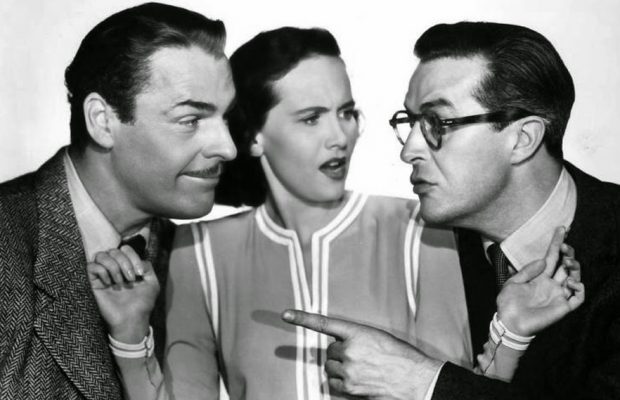
Toronto Film Society presented The Trouble With Women (1947) on Sunday, November 8, 1981 in a double bill with The Greatest Show on Earth as part of the Season 34 Sunday Afternoon Film Buffs Series, Programme 3.
Production Company: Paramount. Producer: Harry Tugend. Director: Sidney Lanfield. Screenplay: Arthur Sheekman, based on a story by Ruth McKenney and Richard Bransten.
Cast: Ray Milland (Professor Gilbert Sedley), Teresa Wright (Kate Farrell), Brian Donlevy (Joe McBride), Rose Hobart (Dean Agnes Meeler), Charles Smith (Ulysses S. Jones), Lewis Russell (Dr. William Dawson), Iris Adrian (Rita La May), Frank Faylen (Geeger), Rhys Williams (Judge), Lloyd Bridges (Avery Wilson), Norma Varden (Mrs. Wilmer Dawson), James Millican (Keefe), Matt McHugh (Herman), Jimmie Smith (Peanuts).
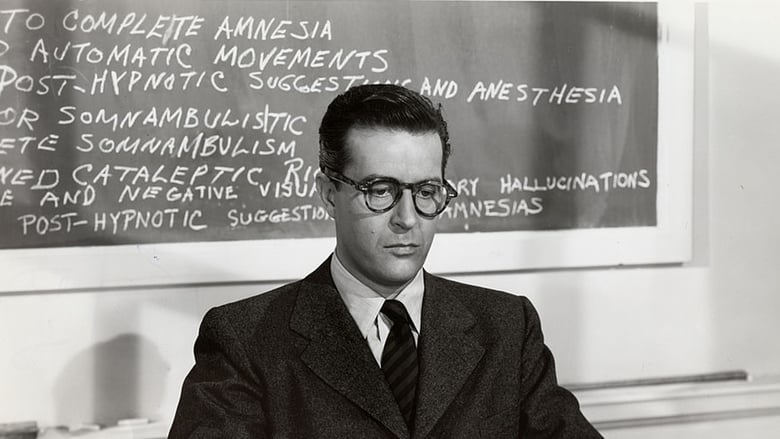
Although the women’s liberation movement is a comparatively recent phenomenon, this afternoon’s film took a look at the subject–albeit from a humorous viewpoint–34 years ago. Ray Milland, for whom the adjectives “suave, debonair, charming, and self-assured” seem to have been invented, plays a psychology professor, the author of a book which states, among other things, that women have a sublimated desire to be dominated by men. Naturally, he is a sitting duck for the press; and reporter Teresa Wright composes an article under a pseudonym, teasing the professor. In a huff, Milland promptly sues her paper. The lady is assigned to get the goods on the (naturally) absent-minded professor by city editor Brian Donlevy, a rough-hewn editor (was there ever any other kind in Hollywood?), who, predictably, is in love with his spunky reporter. She enrols in Milland’s seminar, and proceeds to involve him in several hilarious and embarrassing scrapes.
As the professor, Britisher Ray Milland projects the right mixture of smugness and superiority in his earlier scenes, then turns on the charm as he is smitten with reporter Wright. In common with his contemporaries Leslie Howard, Ronald Colman, et al., Milland had that beautiful melodious accent which seemed to be common to so many British performers of the era–a delight to listen to him, notwithstanding Milland’s considerable skill as an actor.
It is easy to understand the choice of Teresa Wright as the independent-minded reporter, for this stage-trained actress always projected an image of self-assurance, determination and intelligence in her roles. A very dedicated actress, she seems not to have been interested in the self-promotion and aggressiveness necessary to become and remain a top star, and her career declined in the 1950s.
Like all films, The Trouble With Women must be viewed in the context of the time in which it was made, given then-prevailing attitudes and conventions, it is a lighthearted look at a subject–the equality of the sexes–which, oddly enough, is seldom explored currently in a serious manner by Hollywood.
Notes by John Thompson
CAN YOU TYPE, OR USE A MIMEOGRAPHER?
TFS badly needs volunteers to type our programme notes, and to run them off on the mimeographer. (We provide the machines: the typewriters are late models; the mimeographers are truly historic vehicle). If either of these tasks is to your taste, please approach one of the directors (wearing the blue and white badges); he or she will overwhelm you with gratitude.
You may also like...
-
News

Frances Blau
Toronto Film Society | February 27, 2024On Monday, February 26th, 2024, Toronto Film Society lost longtime friend, supporter, and board member Frances Blau. Known for her sense of humour, her love of film, her generosity,...
-
Special Events

Arsenic and Old Lace (1944) at the Paradise Theatre
Toronto Film Society | April 21, 2024Toronto Film Society presents Arsenic and Old Lace (1944) at the Paradise Theatre on Sunday, May 5, 2024 at 2:30 p.m. Screwball comedy meets the macabre in one of...
Programming

Virtual Saturday Night at the Movies
Toronto Film Society | April 11, 2024Toronto Film Society is back in the theatre! However, we’re still pleased to continue to bring you films straight to your home! Beginning Season 73 until now we have...
4-
 Toronto Film Society | April 21, 2024
Toronto Film Society | April 21, 2024
-
 Toronto Film Society | November 6, 2022
Toronto Film Society | November 6, 2022
-
 Toronto Film Society | August 1, 2023
Toronto Film Society | August 1, 2023
Donate to Toronto Film Society – We’re now a Registered Charity!
-
Copyright © 2017 Toronto Film Society.

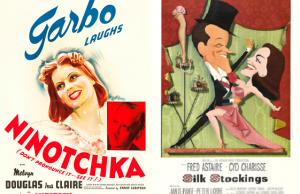
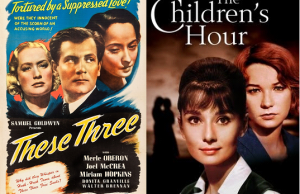
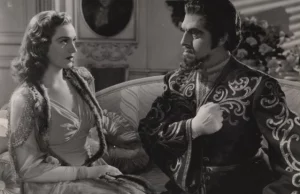
Leave a Reply